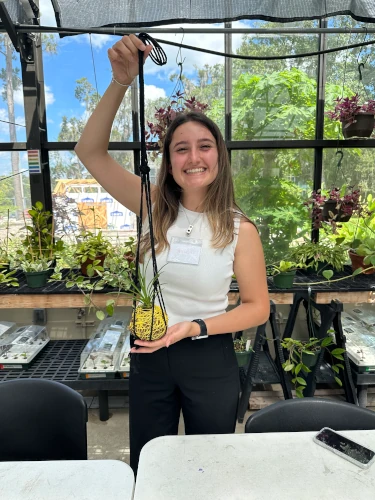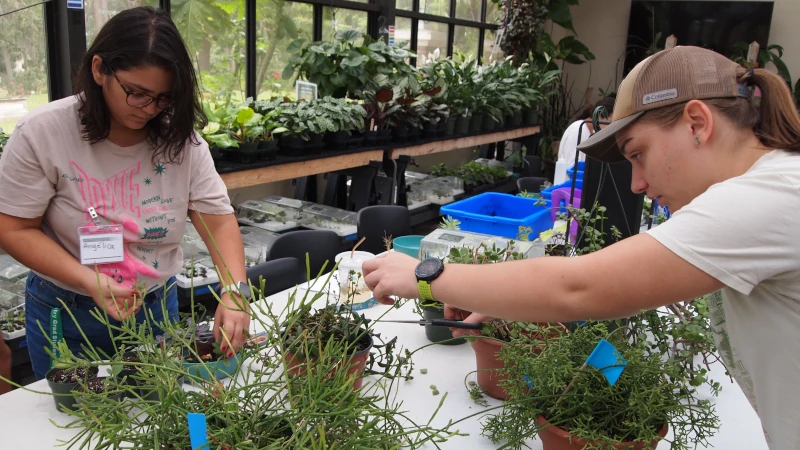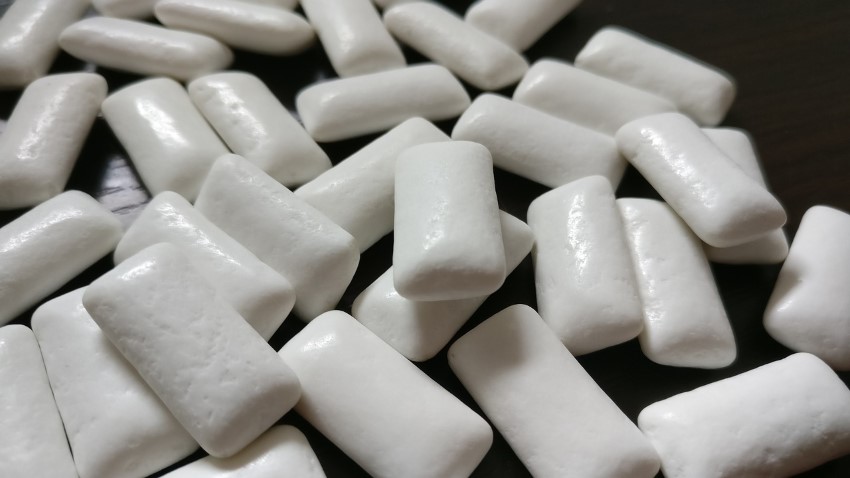Therapeutic horticulture program helps students reduce stress, increase academic resilience
Written by: Meredith Bauer-Mitchell
College can be full of stressors. Deadlines, pressure to ace exams, changing social groups and the looming fears of securing a job after graduation all lead students to feel exhausted, frazzled and anxious.
What if part of the solution for taking the edge off is as simple as soil, sunlight and water?
A new study from University of Florida researchers found that their therapeutic horticulture program not only helped reduce students’ overall stress – it also increased their academic resilience, which could lead to better performance in class.
The study, published in the journal Frontiers in Psychology, examined groups of University of Florida students over three semesters to evaluate their stress before and after doing therapeutic horticulture activities, such as caring for potted plants and doing paired mindfulness activities.

Yagmur Unal showing the kokedama (Japanese moss ball) and macrame hanger that she created. Credit: UF/IFAS
“We want to help students recognize the relationship between nature and their personal wellness,” said Leah Diehl, program director and UF Institute of Food and Agricultural Sciences (UF/IFAS) faculty. “We hope they’ll use these strategies for their entire life – in their careers and family lives – not just while they’re a student in the university.”
Students paired a horticulture activity – such as propagating plant cuttings – with a wellness strategy such as gratitude or mindfulness, with the goal of reducing stress and anxiety.
Most of the students who participated in this program at UF found that after the program was finished, they felt they had more academic resilience, perseverance, help-seeking skills, fewer negative emotions and less overall perceived stress.
The semester-long program has run for several years, with different students participating each semester, and Diehl said students were able to be creative while connecting with nature. In some sessions, they crafted foliage bouquets and talked about the people they’re grateful for and would like to give the bouquet to. In others, they practiced breathing techniques and created a macrame hanger and a Japanese moss ball – metaphorically tying together the idea of the body-centered practices, support and the tangles of a root ball.

Angelica Gouveia & Julie Stich taking cuttings from large succulent plants to create a mixed succulent bowl. Credit: UF/IFAS
The UF Therapeutic Horticulture program, hosted at Wilmot Botanical Gardens, ran the study along with assistance from the UF Counseling and Wellness Center experts, who helped develop wellness strategies each week.
Stress and mental health challenges are persistent obstacles for college students, reports have found. A 2024 State of Higher Education Report stated that one in three enrolled college students had considered dropping out, and of that number, 64% said it was due to emotional stress or mental health.
The study notes that given that college counseling and wellness centers nationwide are “overwhelmed” with clients, a therapeutic horticulture program done in a group setting could be a useful tool to provide resources to students in need.
Additional studies will be done to evaluate the effectiveness of the program in subsequent semesters. The program has run for seven semesters so far, and this study evaluates just the first three semesters’ work.
Diehl said she hopes to expand this program to other universities, first in Florida and then nationwide.
The post Therapeutic horticulture program helps students reduce stress, increase academic resilience, written by Meredith Bauer-Mitchell, first appeared in the University of Florida Institute of Food and Agricultural Sciences’ Agriculture blog.
The mission of the University of Florida Institute of Food and Agricultural Sciences (UF/IFAS) is to develop knowledge relevant to agricultural, human and natural resources and to make that knowledge available to sustain and enhance the quality of human life. With more than a dozen research facilities, 67 county Extension offices, and award-winning students and faculty in the UF College of Agricultural and Life Sciences, UF/IFAS brings science-based solutions to the state’s agricultural and natural resources industries, and all Florida residents.



